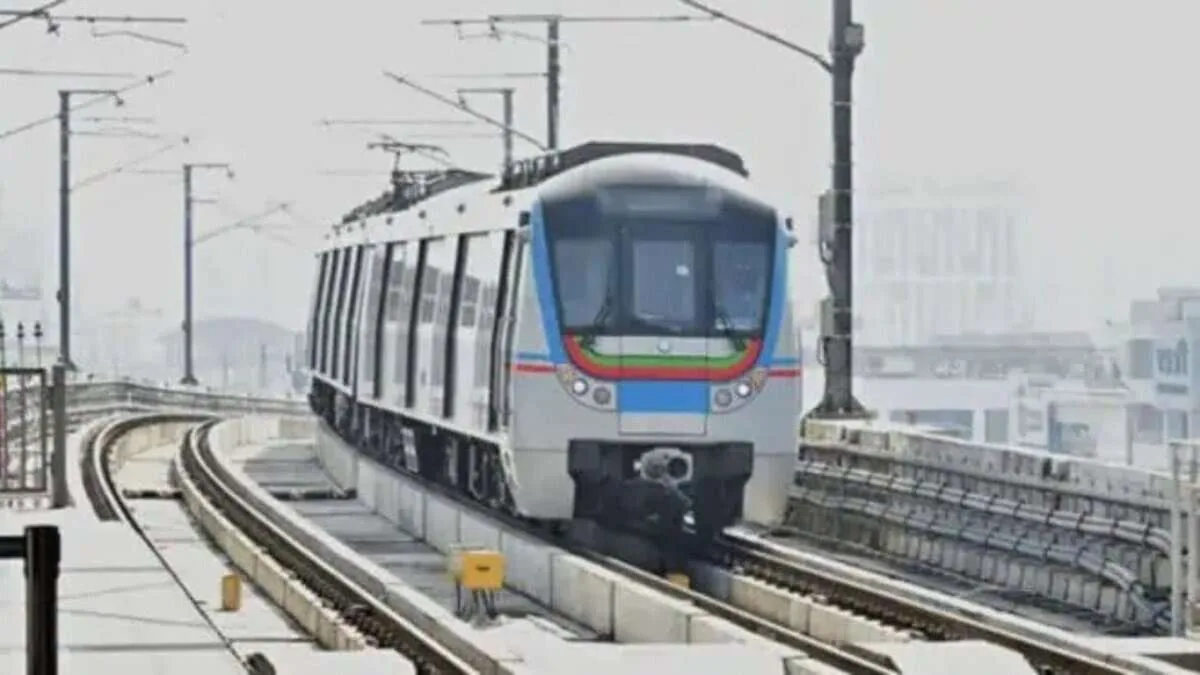Hyderabad: The Hyderabad Metro Rail (HMRL) has gained a new recognition with Harvard University publishing a case study on it.
The research study by Harvard recognised the Hyderabad Metro Rail as one of the largest Public-Private Partnership (PPP) metro rail projects worldwide. Harvard Business Review has published a case study highlighting its achievements.
The research focuses on HMRL managing director NVS Reddy’s leadership and strategic skill is driving the project and how it overcame several hurdles.
Key findings of the Harvard research are as follows
The latest research concluded that the Hyderabad Metro Rail showcases that effective leadership helped overcome challenges such as land acquisition, government approvals, political pressures, and financial constraints.
It further states that strategic planning and diplomatic negotiations positioned Hyderabad Metro as a globally recognized infrastructure development.
Hyderabad Metro fare to increase? Officials say not yet
Bold decisions and administrative efficiency contributed to making Hyderabad Metro one of India’s best metro systems.
The implementation approach followed in the Hyderabad Metro Rail project is considered unique. The Harvard publication mentions that the project has created a lasting impact due to its distinctive planning methods, advanced technology, financial strategies, and problem-solving leadership.
Conclusions of the research
The Harvard research concluded that Hyderabad Metro Rail project faced significant obstacles, including resource limitations, unstable political environments, and complex stakeholder coordination. By implementing innovative financial models, advanced engineering solutions, and strategic stakeholder management, the leadership successfully overcame hurdles and completed the first phase.
The study explores the question “How did Hyderabad Metro accomplish this? What lessons can be learned from handling the complexities of large-scale, multi-dimensional projects?” It aims to extract valuable insights from this experience.
Previously, the Indian School of Business (ISB) and Stanford conducted research on the Hyderabad metro. ISB Professors and researchers explored the inception and implementation of the Hyderabad Metro Rail project under the theme, “Hyderabad Metro – From Concept to Execution: The World’s Largest Metro Rail Project under Public-Private Partnership.” Harvard University selected this as a case study and published it in its prestigious Harvard Business journal.
The research paper explains that in 2006, NVS Reddy proposed the Metro Rail project to address urban transportation challenges, adopting the PPP model to execute the world’s largest PPP metro rail project.
From inception, the project faced innumerable challenges such as the initial Maytas failure, land acquisition issues, public protests, religious and heritage issues, political uncertainties, and financial hurdles. Despite these obstacles, the Hyderabad Metro Rail has emerged as a world-class infrastructure project.
The study emphasizes the necessity of the Metro in Hyderabad and details how the project was practically implemented under strong leadership.







